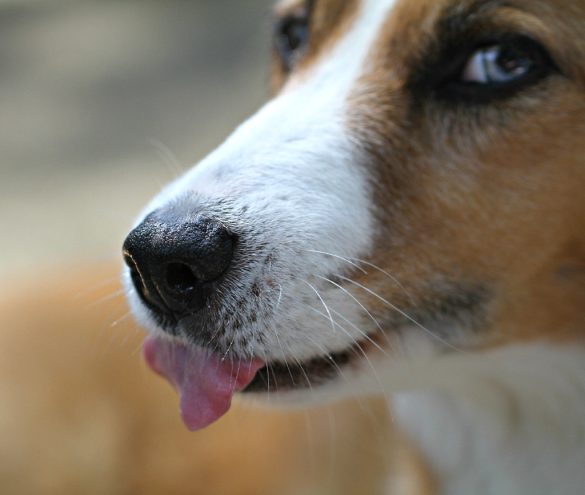As pet owners, we all want our furry friends to live long, healthy lives. One of the most important ways to ensure their well-being is through proper vaccinations. Just like humans, pets can be susceptible to a variety of illnesses and diseases, some of which can be fatal. That’s why it’s crucial to stay up-to-date on your pet’s vaccinations. Not only does it protect your pet, but it also helps prevent the spread of disease to other animals and even humans. So, let’s dive into the world of pet vaccinations and explore why they are so vital for our beloved companions.

1. Protecting Your Furry Friends: Why Pet Vaccinations are Essential
As a pet owner, it is your responsibility to ensure the health and well-being of your furry friend. One of the most important ways to do this is by getting them vaccinated. Vaccinations protect your pet from a variety of diseases and illnesses that can be harmful or even fatal. Here are some reasons why pet vaccinations are essential:
- Preventable diseases: Vaccinations protect your pet from diseases that can be easily prevented. These include rabies, distemper, parvovirus, and more. By getting your pet vaccinated, you can ensure that they are protected from these diseases and stay healthy.
- Protects other pets: Vaccinations not only protect your pet but also other pets in the community. By getting your pet vaccinated, you can prevent the spread of diseases to other animals.
- Cost-effective: Vaccinations are a cost-effective way to keep your pet healthy. The cost of vaccinations is much lower than the cost of treating a pet with a preventable disease.
It is important to note that vaccinations are not a one-time event. Your pet will need to receive regular vaccinations throughout their life to ensure that they stay protected. Your veterinarian can help you create a vaccination schedule that is tailored to your pet’s needs.
Overall, pet vaccinations are essential for protecting your furry friend’s health and well-being. By getting your pet vaccinated, you can ensure that they stay healthy and happy for years to come.
2. The Power of Prevention: Understanding the Importance of Vital Shots for Pets
As pet owners, we all want our furry friends to live long and healthy lives. One of the most important ways to ensure their well-being is by getting them vaccinated. Vaccinations protect pets from serious and potentially deadly diseases, and they can also help prevent the spread of these diseases to other animals and even humans. Here are some of the most important shots your pet should receive:
- Rabies: This is a fatal virus that can be transmitted to humans through the bite of an infected animal. All dogs and cats should receive a rabies vaccine, which is required by law in most states.
- Distemper: This virus can cause respiratory and gastrointestinal problems, as well as seizures and paralysis. Dogs should receive a distemper vaccine as puppies and then again every 1-3 years.
- Hepatitis: This virus can cause liver damage and other serious health problems. Dogs should receive a hepatitis vaccine as puppies and then again every 1-3 years.
Other important vaccines for dogs include parvovirus, bordetella, and leptospirosis. For cats, vaccines for feline leukemia, calicivirus, and panleukopenia are crucial. Your veterinarian can help you determine which vaccines are necessary for your pet based on their age, health, and lifestyle. Remember, prevention is key when it comes to keeping your pet healthy and happy!
3. From Rabies to Parvo: How Vaccinations Keep Your Pets Safe and Healthy
Vaccinations are an essential part of keeping your pets healthy and safe. They protect your furry friends from a range of diseases that can be fatal or cause long-term health problems. Here are some of the most common vaccines your pet may need:
- Rabies: This vaccine is required by law in most states and is essential for protecting your pet from this deadly virus. Rabies can be transmitted to humans, so vaccinating your pet is also a public health issue.
- Distemper: This vaccine protects against a group of viruses that can cause respiratory, gastrointestinal, and neurological problems in dogs and cats.
- Parvovirus: This highly contagious virus can cause severe vomiting and diarrhea, leading to dehydration and even death. Vaccinating your dog against parvo is crucial, especially if they spend time around other dogs.
It’s important to note that not all pets need the same vaccines. Your veterinarian will create a customized vaccination schedule based on your pet’s age, lifestyle, and health status. Keeping up with your pet’s vaccinations is a simple way to ensure they stay healthy and happy for years to come. As pet owners, we have a responsibility to keep our furry friends healthy and happy. One of the most important ways we can do this is by ensuring they receive their necessary vaccinations. From protecting against deadly diseases to preventing the spread of illnesses, vaccinations are vital for the well-being of our pets and the community as a whole. So, let’s make sure we stay up-to-date on our pet’s shots and give them the best chance at a long and healthy life. After all, they give us so much love and joy, it’s the least we can do in return.

